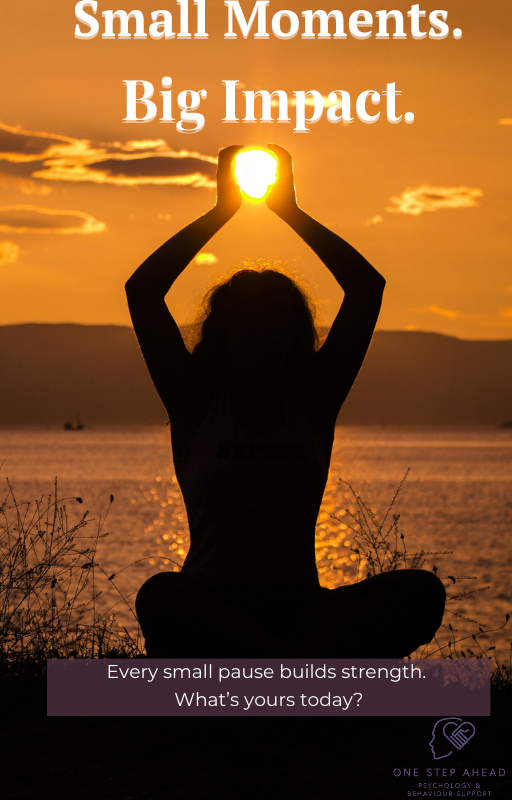Feeling Burnt Out as a Carer? You're Not Alone
- One Step Ahead

- Aug 13, 2025
- 2 min read
Carers are the quiet heroes in so many people's lives. Whether you're supporting a child with additional needs, helping a parent navigate illness, or working in a professional care role, the emotional, physical, and mental load can feel constant.
And sometimes, it’s too much.
Carer burnout is real. It's not a sign of weakness. It’s a signal that you’ve been giving so much of yourself for so long, and now your body and brain need some care too.
At One Step Ahead, we see this all the time. Here are three simple and realistic wellbeing tips we often share with carers.
1. Take Micro Breaks That Actually Work
You don’t need an hour to recharge. A few minutes can make a difference.
Step outside for 2 minutes of fresh air
Breathe in for 4 counts, hold for 4, and out for 4
Put your phone down and drink water slowly
Sit and stretch your shoulders for 30 seconds
Why it matters: These tiny resets signal to your nervous system that you're safe. They help lower stress hormones and stop the overwhelm spiral.
2. Acknowledge What’s Hard Without Guilt
Carers often feel they shouldn't complain. But burnout thrives in silence.
Try this:
Name your feelings out loud: “This is exhausting, and I’m allowed to say that.”
Talk to a trusted friend or therapist
Write one honest line in a journal each night
It's okay to love the person you care for and also feel completely depleted. These feelings can exist together.
3. Build a Personal “Reset List”
When you feel overwhelmed, it can be hard to think clearly. That’s where a reset list comes in.
Grab a pen or notes app and write down five to ten things that help you feel a little more like yourself. Your list might include:
Listening to music
Calling a friend
Watching your comfort show
Moving your body
Sitting in silence
Aromatherapy or stretching
Playing with your dog
Stick it on the fridge or bedside table. When burnout creeps in, refer to it without needing to decide what to do in the moment.
Final Thoughts
Caring for someone else can be a full-time emotional job. But you matter too. Small steps taken regularly can protect your energy and wellbeing in the long run.
If you're feeling overwhelmed, reach out. You're not alone, and help is available.



